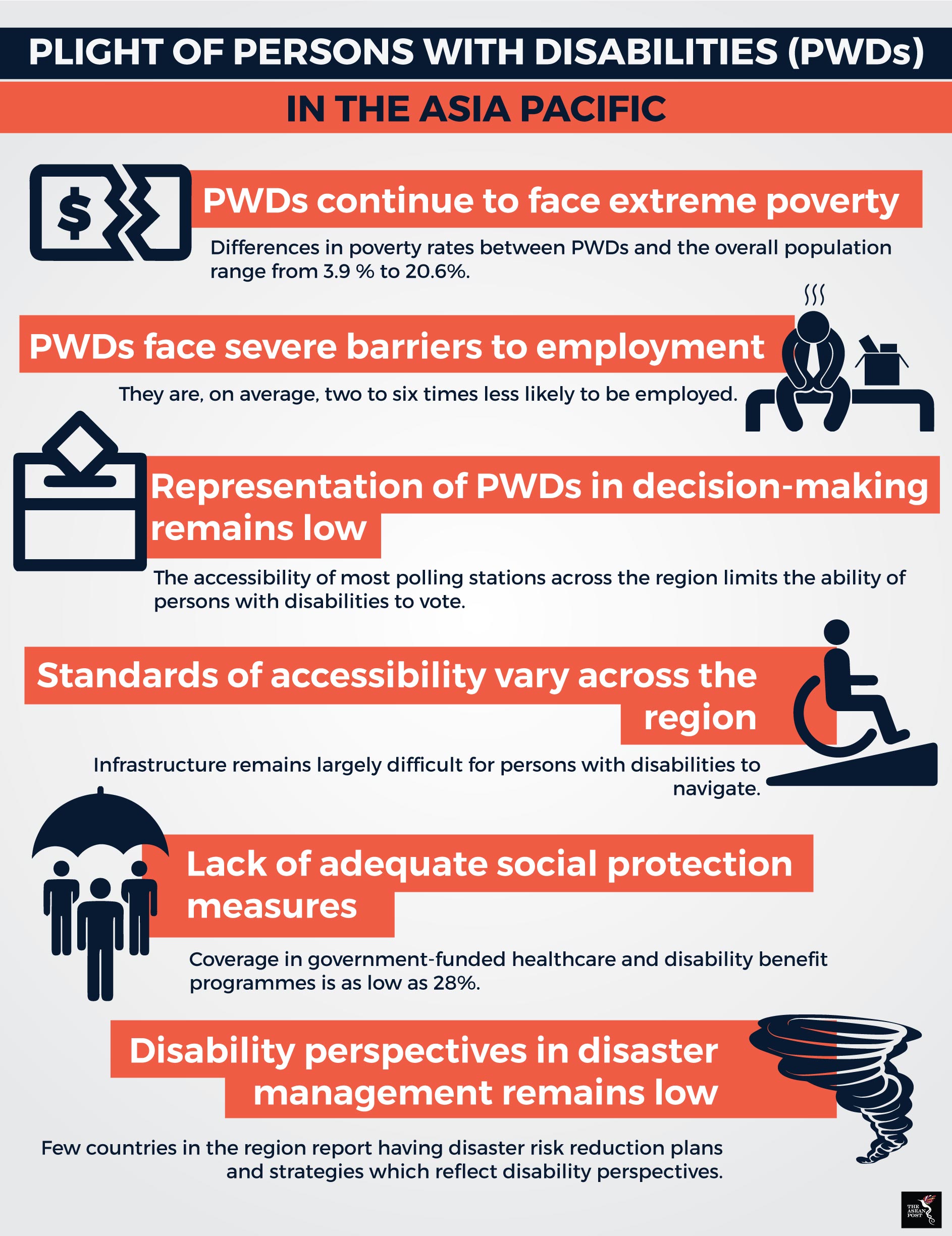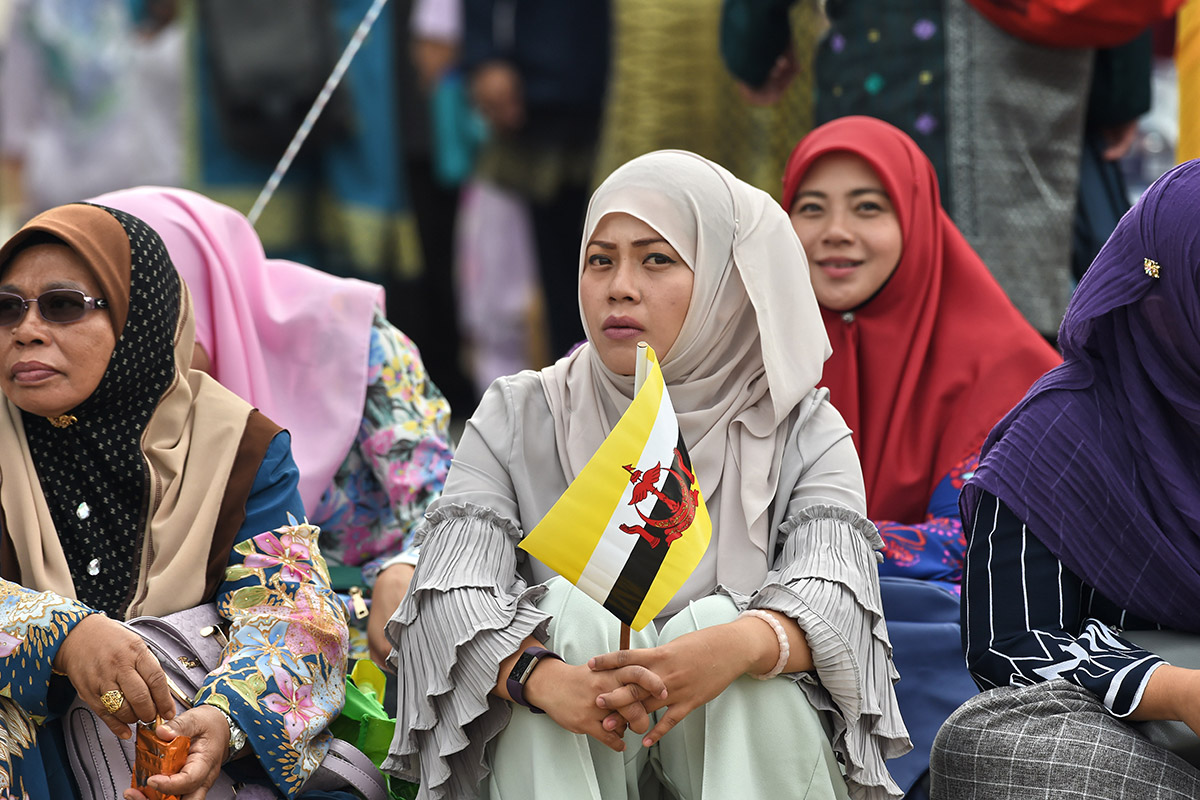Brunei is one of the most prosperous nations in ASEAN by far, with a gross domestic product (GDP) per capita of US$26,935 in 2017 according to the International Monetary Fund. However, this income is unevenly distributed among its people, particularly persons with disabilities (PWDs), who are in danger of slipping through the cracks of governmental policy.
This was highlighted during the nation’s 14th Legislative Council meeting in March, when Culture, Youth and Sports Minister Haji Aminuddin Ihsan noted that out of 9,282 PWDs registered with the ministry, only 56 had jobs, representing a PWD employment rate of just 0.6%.
If anything, this figure likely under-reports the actual rate of PWD unemployment in the country, as many PWDs there remain unregistered. The United Nations estimates that up to 12% of any given population comprises persons with some form of disability. Applied to Brunei’s 2016 population of 423,196, this places the actual number of PWDs in the country at more than 50,783 this year – more than five times the registered figure.
Unfortunately, due to the lack of priority given to the issue by regional governments, concrete data on PWD employment in ASEAN is hard to come by. However, Brunei’s employment rate compares poorly to Singapore’s 2017 figure of 12.65%, as estimated by the World Economic Forum. Singapore is the only ASEAN member state to surpass Brunei in terms of affluence.
“The primary issue is awareness, particularly with regard to the challenges that PWDs face in the workplace, as well as relevant training programmes. For example, most offices now use computers, which would be difficult for the visually impaired to work with. With that said, the situation in Brunei is improving, but there is still much room to improve,” says Brunei Darussalam National Association of the Blind president Muhammad Hamzi.

Source: United Nations Economic and Social Commission for Asia and the Pacific
Disconnects in policy
But why is this demographic overlooked to such a worrying degree in the country? According to Malai Haji Abdullah, president of the Society for the Management of Autism Related issues in Training, Education and Resources (SMARTER) Brunei, the issue is caused by a fundamental disconnect between policy decisions at the regional and national levels.
While Brunei signed the Convention on the Rights of Persons with Disabilities (CRPD) in 2007 and ratified it in 2016, the passing or reform of national legislation to reflect the convention’s principles has yet to take place, explained Malai.
In terms of policy, the regulatory framework providing social security to PWDs includes the Old Age and Disability Pensions (OADP) Act (1954) and Tabung Amanah Pekerja Order 1992, which led to the establishment of an employees’ trust fund in 1993.
However, while these and other social safety nets such as subsistence allowances exist, their coverage does not extend to certain demographics, notably the unemployed. In fact, no unemployment benefit scheme currently exists in Brunei, according to the 2010 Universiti Brunei Darussalam report Social Protection in Brunei Darussalam – Currents and Challenges.
This is naturally a concern, given that Brunei’s PWD unemployment rate is at least 99.4% at a conservative estimate, by the Ministry of Culture, Youth and Sports’ own admission. Unfortunately, those with disabilities are often under-represented in political and decision-making processes, ensuring that the plight of this majority goes unheard.
“Only 0.4 percent of national parliamentarians in the [APAC] region are persons with disabilities,” said United Nations Under-Secretary-General Shamshad Akhtar in the organisation’s 2017 Building Disability‑Inclusive Societies in Asia and the Pacific report.
“Policy measures to increase the meaningful representation of persons with disabilities in parliaments, political parties, national gender equality mechanisms, decision-making processes and governance at all levels are needed.”
Thankfully, concerted efforts by non-government organisations such as SMARTER Brunei and the Brunei Darussalam National Association of the Blind have gone a long way towards giving PWDs a platform to voice their concerns on the national stage.
The most recent meeting of the ASEAN & Japan High Level Officials Meeting on Caring Societies, held in Tokyo, outlined initiatives aimed at assisting PWDs in Brunei ranging from community-based rehabilitation within their home environments, along with academic, life, social and vocational skills training, to job placement programmes.
In this light, these and other recent steps such as Sultan Hassanal Bolkiah’s amendment of the OADP Act in February to extend a US$150 monthly allowance to differently-abled children are welcome signs of progress towards a more equitable playing ground for PWDs in the country.
In moving the inclusivity agenda forward, the Brunei government must keep in mind that those with disabilities are an integral part of the nation’s social fabric. After all, diminishing physical abilities are an inevitable part of ageing, which comes to all people regardless of demographic or background.
